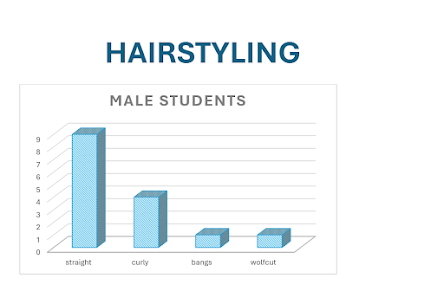Teaching is more than just delivering lessons;
it’s about shaping minds, fostering curiosity, and overcoming challenges. To
better understand the experiences, motivations, and perspectives of our educators,
my colleague, Aggeliki Mpethani, and I, Maira Daskalopoulou conducted a survey
amongsome of the teachers at Avgoulea Linardatou School. In this presentation,we’ll
be sharing the key findings, revealing what our teachers love about their
profession, the challenges they face, and what truly makes teaching rewarding.
Firstly, we asked the headmistresss, who is
also a maths teacher, Stavey Linardatou, the following questions:
1)How important do you think is for
students to learn mathematics and how beneficial is it for their lives?
To me,mathematics is a universal language that transcends national barriers and
translates the world around us. Whatever you are, a farmer, a manager, a scientist,
you need mathematics. It seems to me that a mathematically literate
society would be more coherent, effective and prone to reason and hence a
better one.
2)Do you think that a healthy school environment enhances students’ academic
performance? How do you ensure such an environment for our school?
It goes without saying that a healthy school environment is most important in
supporting students' academic achievement. In a safe, supportive, and engaged
environment, students will most probably excel academically. Concentration,
motivation, and a general state of well-being, all of which have a direct
bearing on academic performance can flourish in a positive atmosphere. As far
as our school is concerned, we work on a daily basis on this, by doing the
following: a. Offering counseling services by our two school psychologists for
each student and each family. It's important to encourage open communication
and make sure students know they can seek help when they need it. b. We have
designed, in collaboration with clinical psychologists (external partners),
regular class interventions regarding stress & time management,
antibullying, sexual education and addiction to the internet or online gaming.
We also include well-known programs such as HFM (building EQ skills by
recognizing and rewarding empathetic actions) and Sherborne Developmental
Movement for our primary school. Our goal is to foster a culture of respect and
inclusivity. c. Building positive relationships amongst members of our school
community is also vital. We focus on this especially for newly enrolled
students through team-building activities, our mentoring program (student to
teacher) as well as our student ambassador program (student to student). Once
again, our main purpose here is to create a supportive web of relationships
where everyone feels connected. d. Clearly, there is a growing consensus among
educators and researchers that widely used learning strategies are no
longer sufficient to motivate students in this everchanging world. This is
because students today are exposed to a wide range of digital media and
technology outside the classroom, which often provide highly immersive and
interactive experiences that are just difficult to replicate within a
traditional classroom setting. This gap in stimuli can lead to disengagement,
boredom, and even frustration among students, who may struggle to see the
relevance and applicability of what they are learning at school. To
address this gap, our educators are increasingly turning to teaching methods
that can leverage technology. Hence, keeping motivated our students regarding
curriculum leads to a healthier school community leading to improved academic
outcomes.
We asked another mathematician, Afroditi
Dimaki, the following questions:
1)As a mathematician, do you think this
school focuses enough on mathematics?
Yes, this school places strong emphasis on mathematics, fostering critical
thinking and problem-solving skills effectively.
2)Do you think that this school is capable of preparing students as good as
possible for the Panhellenic exams?
Yes, the school’s program greatly helps in preparing students for the
Panhellenic exams! There is proper class distribution, rich material, and a
two-year study plan for the complete preparation of the students.
We also asked one of our philologists, Areti
Veli, the following questions:
1)As a philologist, how important do you
think subjects such as literature and Ancient Greek are?
As a philologist, I prefer to consider literature and Ancient Greek (or any
classical language) as absolutely vital for understanding the roots of human
thought, culture, and language development. Literature is a crucial vehicle for
conveying the richness of human experience, values, and historical context. By
studying ancient texts, we can trace how ideas, philosophies, and narratives
have evolved over millennia, shaping our modern intellectual landscape.
2) In your opinion what makes this school different from others? What is the
main goal you want to achieve?
I believe that what distinguishes our school from others is not just the
quality of the knowledge provided along with our great organization, but also
our group of educational staff, who treat our students with a true sense of
responsibility, compassion and their welcoming, warm smile. Our main goal for
our students is to develop their creativity, to be heard and understood, and
to be well prepared to integrate smoothly into society, becoming mentally
healthy and happy individuals.
Finally, we asked our English teacher, Roula
Trigoni, the following questions:
1. 1.How important do you think it
is for students to learn English and what impact will this have on their lives?
Learning English is highly important for
students as it can have a profound impact on their personal, academic and
professional lives. Proficiency in English enables students to connect with
people from different parts of the world. It also allows them to access a
wealth of knowledge including academic research, online courses and educational
materials. Most importantly, mastery of English enhances employability
especially in industries like technology, business, science and tourism.
Overall, learning English is an essential skill that provides students with
opportunities for growth, cultural exchange and success in an interconnected
world.
2. 2. Do you think this school
focuses enough on learning the English language? Do you have prior experience
teaching in other schools? Can you compare them?
Our school places a strong emphasis on
teaching the English language, offering a curriculum that prioritizes all
reading, writing, speaking and listening skills. The schedule is extended to
five hours a week and for all certificate candidates to seven hours a week. The
success of our students in acquiring all sorts of certificates available in the
market constitutes the strongest evidence of the impeccable way in which
English is taught in our school. I do have precious experience teaching in
frontistiria and private IEK and I can assure you that both from a teacher’s
and a student’s perspective, our school is much better and it ensures that all
gain proficiency and confidence in English!
By Maria Daskalopoulou and Aggeliki
Mpethani.


.jpg)
.jpg)




























.jpg)
.jpg)










